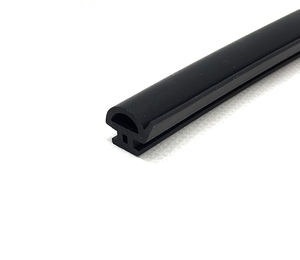Industrial seals are essential components used in a wide range of industrial applications to prevent the leakage of fluids, contain pressure, and provide protection against contaminants, debris, and environmental factors. These seals come in various forms, materials, and designs to meet the specific requirements of different industries. Here’s a comprehensive description of industrial seals:
Purpose:
- Leak Prevention: The primary purpose of industrial seals is to prevent the unwanted leakage of fluids, which can include liquids, gases, or powders. These seals maintain the integrity of a system by creating a barrier that contains the substance within the intended space.
- Pressure Containment: In many industrial processes, pressure needs to be contained within a system. Industrial seals play a crucial role in maintaining the pressure and ensuring the safe and efficient operation of equipment and machinery.
- Contaminant Protection: Seals protect industrial equipment and components from contaminants, such as dirt, dust, moisture, and corrosive substances. This protection is vital in ensuring the longevity and reliability of machinery.
- Environmental Sealing: Some industrial seals are designed to provide environmental sealing, ensuring that the interior environment is protected from external factors, including weather conditions, noise, and other environmental elements.
Types of Industrial Seals:
- O-Rings: These are round, donut-shaped seals made from various materials, including rubber, silicone, and fluorocarbon. O-rings are widely used for sealing static and dynamic applications in various industries, including automotive, aerospace, and hydraulic systems.
- Gaskets: Gaskets are flat seals typically made of materials like rubber, cork, or metal. They are used to create a seal between two flat surfaces, such as between flanges in pipelines or machinery.
- Lip Seals: Lip seals, also known as oil seals, are used to prevent the leakage of lubricants and protect bearings and rotating shafts in machinery. They have a lip that comes into contact with the rotating shaft to form a seal.
- Mechanical Seals: These seals are commonly used in pumps, mixers, and other rotating equipment. They consist of two parts, one stationary and one rotating, that work together to create a dynamic seal.
- Diaphragm Seals: Diaphragm seals are used to separate a process medium from a measuring instrument, ensuring accurate pressure and temperature measurements while preventing contamination.
- Expansion Joints: These flexible connectors are used in piping systems to absorb thermal expansion and contraction, as well as accommodate movement and vibration.
- Bearing Seals: These seals are used in bearings to protect against contaminants and retain lubricants, ensuring the smooth and efficient operation of rotating equipment.
Materials:
Industrial seals are made from a variety of materials, depending on the specific application and requirements. Common materials include:
- Rubber: Nitrile rubber, silicone rubber, and fluorocarbon rubber are frequently used for their flexibility and resistance to various fluids and temperatures.
- Metal: Metal seals, often made of stainless steel or copper, are employed in high-pressure and high-temperature applications.
- PTFE (Polytetrafluoroethylene): Known for its chemical resistance and low friction, PTFE is used in applications where extreme temperatures and aggressive chemicals are a concern.
Installation and Maintenance:
Proper installation is crucial to ensure the effectiveness of industrial seals. Regular maintenance and inspection are also essential to identify wear, damage, or degradation of seals and replace them as needed to prevent leaks or performance issues.
Applications:
Industrial seals are used across a broad spectrum of industries, including manufacturing, petrochemical, automotive, aerospace, construction, pharmaceuticals, and food processing. Their applications range from sealing hydraulic systems and pumps to creating pressure-tight seals in pipelines and ensuring the integrity of aircraft components.
In summary, industrial seals are indispensable components in industrial processes, serving to prevent leaks, contain pressure, protect against contaminants, and provide environmental sealing. The choice of seal type and material depends on the specific application, and their correct installation and maintenance are essential for the efficient and safe operation of industrial equipment and systems.






